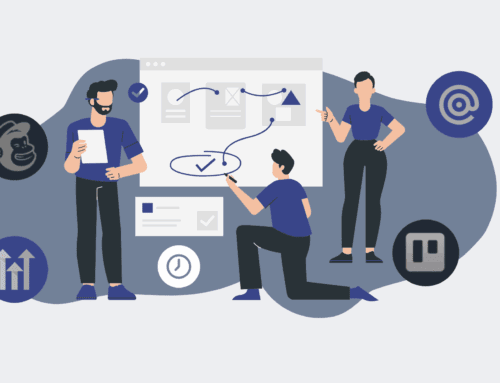Personalize Onboarding Paths Using AI-Driven Recommendations for Optimal Engagement
In today’s competitive talent landscape, a seamless and effective onboarding experience isn’t just a nicety; it’s a strategic imperative. Yet, many organizations still rely on generic, one-size-fits-all onboarding programs that fail to address the diverse needs, skill sets, and learning styles of new hires. This oversight can lead to disengagement, slower time-to-productivity, and ultimately, higher turnover. Imagine if every new employee could embark on an onboarding journey custom-tailored to their unique background, role, and growth trajectory. This vision is no longer aspirational; it’s achievable through AI-driven recommendations.
The Critical Flaw of Generic Onboarding Programs
Traditional onboarding often treats every new hire as if they’re starting from the exact same point, possessing identical knowledge gaps and requiring the same foundational training. This approach overlooks the nuanced differences between individuals—their prior industry experience, specific technical proficiencies, cultural exposure, and even their preferred methods of learning. For a seasoned professional, a generic module on company history might feel redundant, while a fresh graduate might desperately need more foundational context. When onboarding isn’t relevant, new hires quickly become disengaged, perceive their time as wasted, and struggle to see their unique contribution within the larger organizational context. The result? A diluted experience that fails to empower and integrate them effectively, often leading to early exits and significant re-hiring costs.
How AI Transforms the Onboarding Experience
AI introduces a layer of intelligence and adaptability that static programs simply cannot match, creating truly personalized onboarding paths.
Intelligent Assessment and Profiling
The foundation of personalized onboarding lies in understanding the individual. AI systems can rapidly analyze a wealth of data points—from resumes, interview notes, and pre-hire assessments to internal role requirements and team dynamics. By processing this information, AI builds a comprehensive profile for each new hire, identifying their existing strengths, areas for development, role-specific needs, and even their preferred learning modalities. For example, an AI could ascertain that a new software engineer with extensive cloud experience needs less foundational training on infrastructure but more on specific internal coding standards and legacy systems.
Dynamic Content Curation and Delivery
With a robust profile in hand, AI can then dynamically curate and recommend a bespoke learning journey. Instead of a fixed curriculum, new hires receive access to the most relevant training modules, documentation, internal tools, and mentor connections. An AI might suggest specific micro-learning courses for a marketing specialist who needs to brush up on a particular analytics platform, while simultaneously directing a sales professional to product-specific training and key customer success stories. This adaptive delivery ensures that every moment of onboarding is productive and directly contributes to their readiness for the role.
Real-time Feedback and Iteration
Personalization isn’t a one-time event; it’s a continuous process. AI-driven systems can monitor a new hire’s progress, engagement with materials, and even sentiment through automated check-ins and subtle analysis of internal communications (ethically and with consent). If an individual is struggling with a particular concept, the AI can flag it for HR or their manager, recommend supplementary resources, or even suggest a peer mentor. This real-time feedback loop allows the onboarding path to evolve and adapt, ensuring that support is provided precisely when and where it’s needed most, preventing potential disengagement before it escalates.
The Tangible Benefits for Your Business
Implementing AI-driven personalized onboarding translates directly into significant business advantages, moving beyond just a better employee experience.
Accelerated Time-to-Productivity
When new hires receive precisely the information and training they need, their learning curve is dramatically shortened. They gain proficiency faster, understand company culture and processes more quickly, and can contribute meaningfully to their teams sooner. This reduction in ramp-up time directly impacts project timelines, team capacity, and overall operational efficiency, leading to a quicker return on your investment in new talent.
Enhanced Employee Engagement and Retention
A personalized onboarding experience sends a clear message: “We see you, we value your unique contribution, and we’re invested in your success.” This fosters a stronger sense of belonging and commitment from day one. When employees feel understood and supported through a tailored journey, they are significantly more engaged and less likely to seek opportunities elsewhere. Lower voluntary turnover not only saves recruitment costs but also preserves institutional knowledge and team cohesion.
Operational Efficiency and Scalability for HR
By automating the assessment, recommendation, and feedback loops, AI significantly reduces the administrative burden on HR teams. This frees up valuable HR resources to focus on high-touch, human-centric activities like mentoring, coaching, and strategic talent development, rather than manual content allocation. Furthermore, an AI-powered system scales effortlessly, ensuring consistent, high-quality onboarding regardless of the volume of new hires, making growth more manageable and sustainable.
Implementing AI-Driven Onboarding: A Strategic Imperative
Adopting AI for personalized onboarding isn’t merely about deploying a new piece of technology; it’s about a strategic shift in how you view and manage your talent lifecycle. It requires careful consideration of data integration, clear definition of learning outcomes, and an understanding of how AI can augment—not replace—the human element in HR. For high-growth B2B companies, this evolution represents a critical step in building a resilient, adaptable, and highly engaged workforce. It’s about leveraging intelligence to empower every individual from the moment they join your team, setting them—and your organization—up for unparalleled success.
If you would like to read more, we recommend this article: The Intelligent Onboarding Revolution: How AI Drives HR Excellence and New-Hire Success







